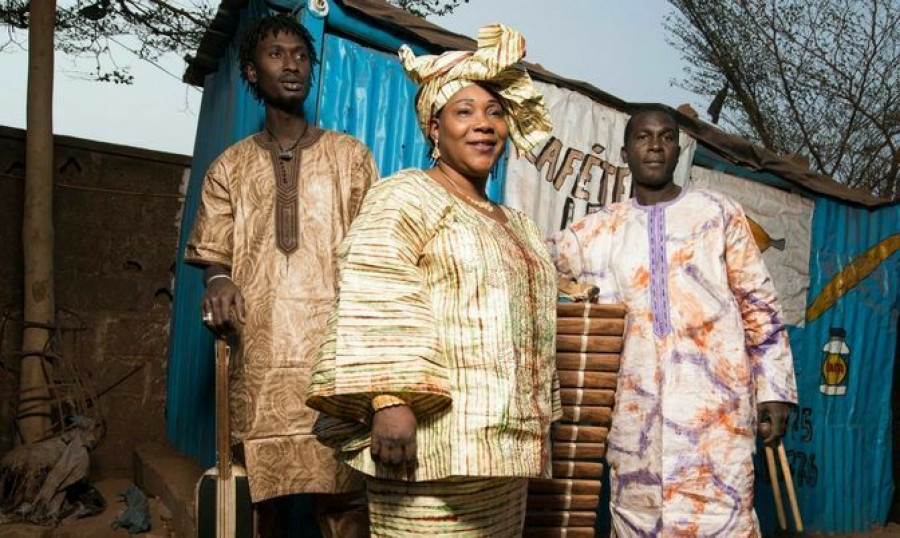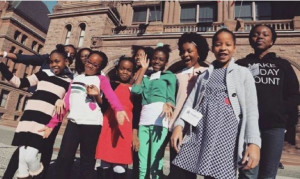On October 14th at 8 pm, they’ll host Music of Mali, featuring the Malian griot supergroup, Trio Da Kali.
Trio Da Kali is a group of outstanding musicians from the Mande culture of southern Mali, who come from a long line of distinguished griots (hereditary musicians). Consisting of vocals, bass ngoni, and balafon, the group takes their name from one of the oldest and most iconic praise songs in the griot repertoire, dating from many centuries ago. “Da Kali” means “to swear an oath”, in this case, it is the griots’ pledge to maintain their art.
Fodé Lassana Diabaté, the musical director of the group, is a virtuoso balafon player from Guinea, where the instrument originated in the 13th century. Lassana began playing at the age of 5 with his father, Djelisory Diabaté, a master balafon player. Lassana later apprenticed himself to some of the celebrated balafon masters such as the late, great El Hadj Djeli Sory Kouyate. To this day, Lassana cherishes the now rare recordings of his mentors, whose unique styles continue to be an important inspiration to him.
Hawa Kasse Mady Diabaté is undoubtedly Mali’s finest female voice today. She is the daughter of Mali’s most celebrated male singer, Kasse Mady Diabaté – guardian of Kela’s special tradition - and the niece of Mali’s best-known female singer and composer, the late Sira Mory Diabaté. Today Hawa is amongst the most sought-after stars at weddings and baptisms (the most important showcase for griots in Mali).
Bass ngoni player Mamadou Kouyaté, the eldest son of the instrument’s greatest exponent Bassekou Kouyaté, also holds down the groove in his father’s band, Ngoni ba. He grew up in Bamako playing the ngoni with his father and the extended family, and is astonishingly creative in the bass lines he produces on this four-string instrument. Kouyaté is also involved in the thriving Bamako hip-hop scene.
All three Da Kali members were brought together by Dr. Lucy Duran on behalf of the Aga Khan Music Initiative, which has an admirable track-record of commissioning and producing a variety of projects involving traditional musicians.
Visit the Aga Khan Museum website to get tickets to see this incredible group in action. Your ticket also gets you access to the museum.

 By
By 






